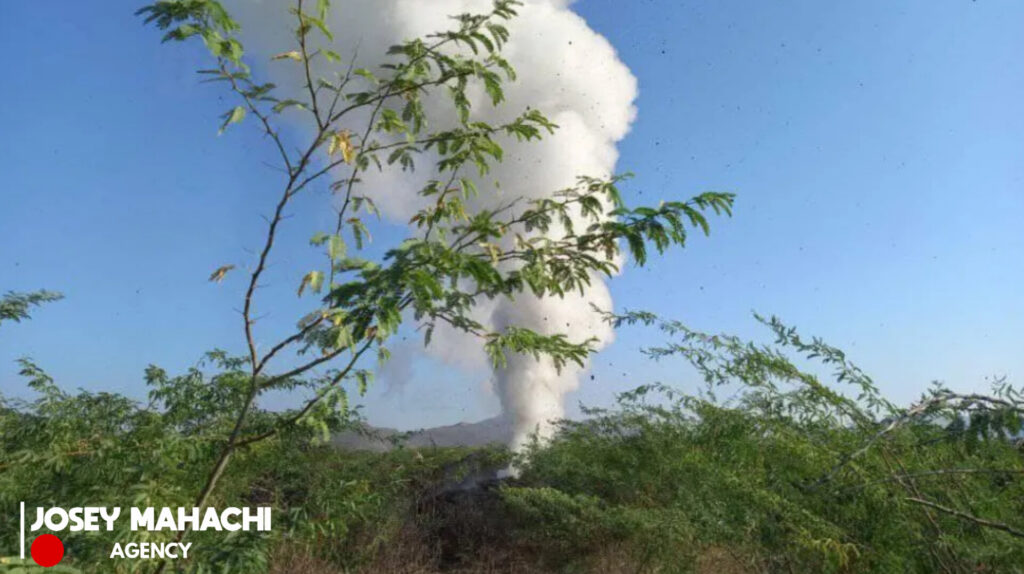By : Lloyd Mahachi
Hundreds of people in a rural part of Ethiopia have been leaving their homes in panic as a nearby volcano has been showing signs of a possible eruption. The villagers, who live in an area 165km (100 miles) northeast of the capital, Addis Ababa, have been fleeing their homes due to the increasing volcanic activity.
The smoke coming from Mount Dofan began around 17:00 local time (14:00 GMT) on Thursday and has a fiery plume that is very high. Sultan Kemil, a local chief, described the scene to the BBC’s Afaan Oromoo service, saying that the smoke is a cause for concern among the villagers.
A video posted by the Ethiopian Geological Institute on its Facebook page shows steam and debris shooting out from the mountain. The institute has been monitoring the volcanic activity and has reported that there have been more than a dozen seismic events around Awash Fentale, an earthquake-prone area of Ethiopia’s Afar region.
The seismic events have been increasing in frequency and intensity, with earthquakes getting “higher and stronger”. Abdu Ali, the chief administrator of the local area in Afar, told Ethiopia’s FBC news site that an evacuation process is underway to prevent harm to residents.
The evacuation process is being carried out as a precautionary measure to ensure the safety of the villagers. Shiferaw Teklemariam, from the Ethiopian Disaster Risk Management Commission, told the Reuters news agency that while it was too early to classify the activity as an eruption, authorities were taking precautions.
The volcanic activity has also been felt in Addis Ababa, with tremors being reported in the capital city. The authorities are closely monitoring the situation and are working to ensure the safety of the villagers and the general public.
The villagers who have been fleeing their homes are being relocated to safer areas, where they will be provided with food, shelter, and other essential services. The authorities are working to minimize the disruption caused by the volcanic activity and to ensure that the villagers can return to their homes as soon as it is safe to do so.
The volcanic activity in Ethiopia is a reminder of the country’s geological instability and the need for preparedness and emergency planning. The authorities are working to mitigate the risks associated with volcanic activity and to ensure the safety of the public.
In recent years, Ethiopia has experienced several natural disasters, including earthquakes, floods, and droughts. The country is working to improve its disaster preparedness and response capabilities, and the current volcanic activity is a test of these capabilities.
The international community is also providing support to Ethiopia in its response to the volcanic activity. The United Nations and other humanitarian agencies are working with the Ethiopian authorities to provide assistance to the affected villagers and to support the evacuation efforts.
The situation in Ethiopia is being closely monitored, and the authorities are working to ensure the safety of the public. The volcanic activity is a reminder of the importance of preparedness and emergency planning, and the need for international cooperation in responding to natural disasters.
Editor : Josephine Mahachi

